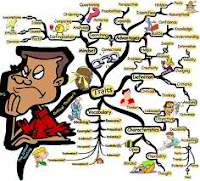Survival Techniques for Aspergers Teens

The challenges of Aspergers (high functioning autism) can be many, especially for adolescents. Because socialization plays a major role in teens' lives, the world of an Aspergers adolescent can be a difficult one. Unfortunately, schoolmates and friends are often ignorant about the characteristics associated with Aspergers. This ignorance can often lead to cruelty, making an "Aspie" feel ostracized from other adolescents. Social issues are some of the most common problems associated with this condition. Because the range of symptoms and behaviors are so varied from one youngster to another, the key to discovering coping mechanisms for adolescents with Aspergers depends somewhat on understanding these behaviors. For many young people, the behavior of an Aspergers adolescent can be puzzling and sometimes irritating. Because of this, many schoolmates simply ignore that adolescent. This could result in even more negative behavior on the part of the Aspergers adolescent

